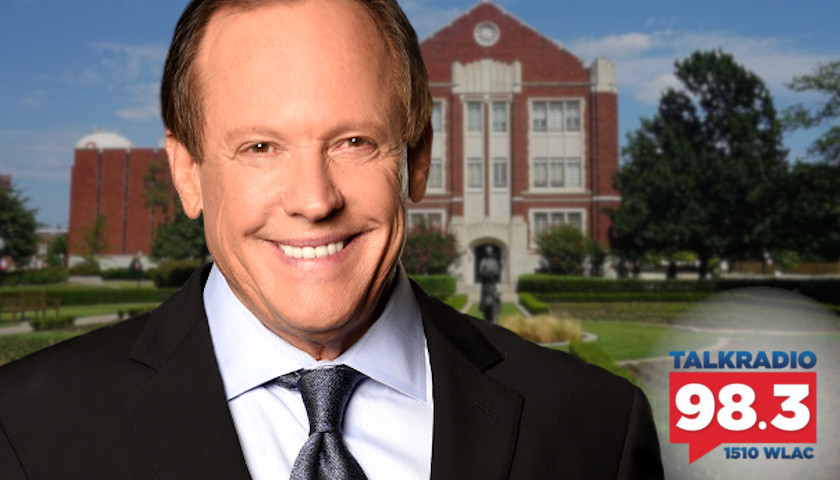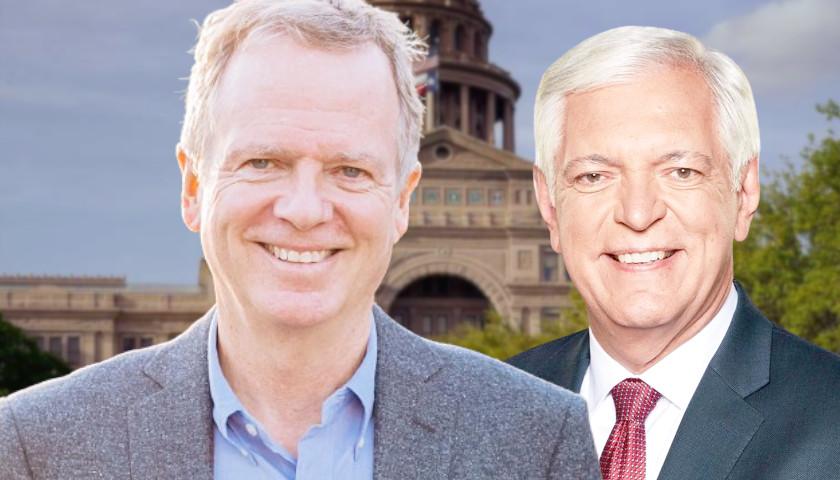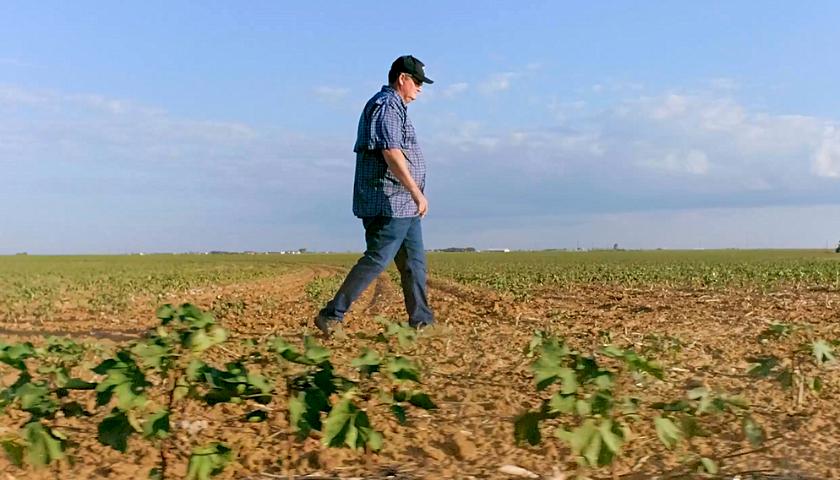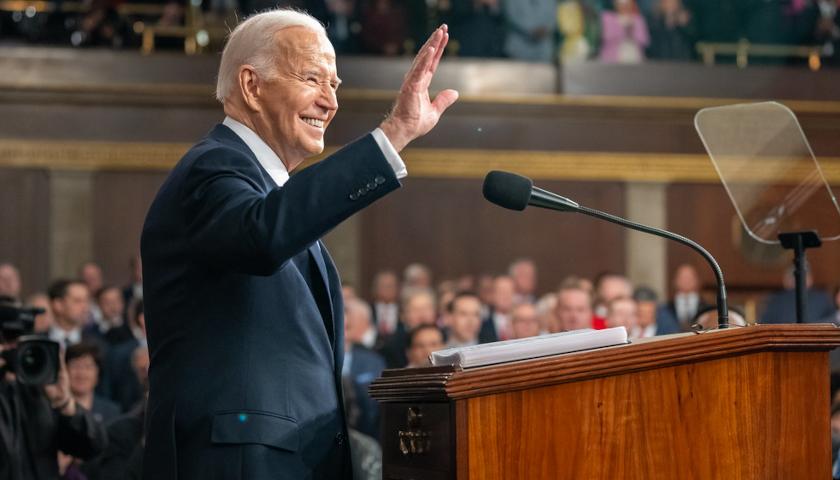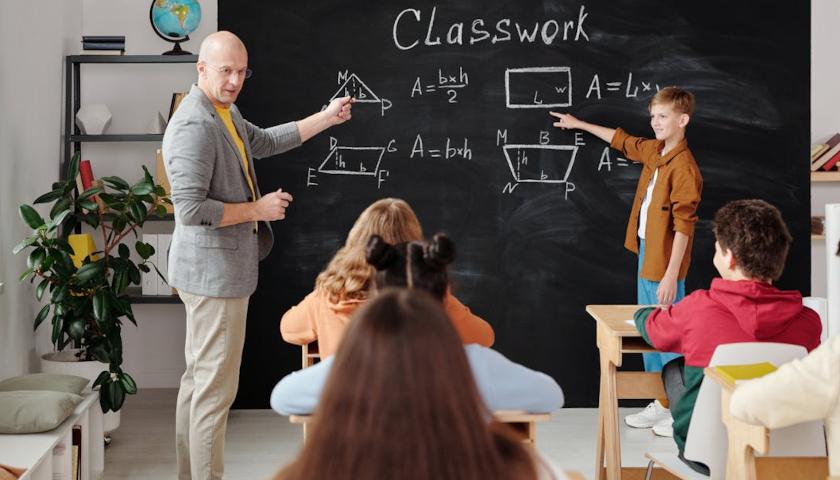Live from Music Row Tuesday morning on The Tennessee Star Report with Michael Patrick Leahy – broadcast on Nashville’s Talk Radio 98.3 and 1510 WLAC weekdays from 5:00 a.m. to 8:00 a.m. – host Leahy welcomed Memphis Entrepreneur Jeff Webb to the studio.
During the second hour, Webb reflected on where he grew up in Northern Dallas and his time while in attendance at the University of Oklahoma.
Leahy: We are joined now in studio by our very good friend Jeff Webb the founder of Varsity Brands. And I will say this, the guy who really invented the modern cheerleading industry. Good morning Jeff.
Webb: Hey Mike. Great to be here with you.
Leahy: One of the things I wanted to chat with you about a little bit is your endorsement of Manny Sethi.
Webb: Correct.
Leahy: So you’ve endorsed Manny Sethi for the United States Senate and you’ve written a commentary about that. And we are going to talk about that during your hour and a half here this morning. One of the reasons that I’ve asked you to come in the studio is because this is a very hotly contested race and we’ve had folks who have endorsed Bill Hagerty on in the studio.
And folks who have endorsed Manny Sethi on in the studio. So we can have a back and forth so people can understand. Our objective here is to give people the information so they can make up their minds. That’s what we’re trying to accomplish.
Webb: Right.
Leahy: You feel pretty strongly about that race, don’t you?
Webb: I really do. I think this is a great opportunity for the citizens of our state who will eventually be a leader in the Senate. Not just a senator. He’s got all of the makings of a dynamic leader who can really do great things for our state.
Leahy: I wanted to just talk a little bit about your background as an entrepreneur and a small business guy. When you think about this in essence there are very few people who have really kind of created an industry. And I think the modern cheerleading industry as we know it is basically the result of your efforts for a lifetime. Tell us a little bit about how you started in Varsity Brands. A very successful company. Revenues have been a couple billion or so a year?
Webb: It’s been pretty close to it.
Leahy: Tell us about how you started this literally on a folding table in your apartment. (Webb laughs) Give us the background on this.
Webb: I went to college at the University of Oklahoma.
Leahy: So you are a Sooner. And Mormon.
Webb: Correct.
Leahy: You were born in Dallas?
Webb: I was born in Dallas, Texas.
Leahy: What part of Dallas?
Webb: North Dallas. The Hillcrest area.
Leahy: Oh yeah. I know that. This is something you don’t know about me and we’re good friends. But I lived in Dallas for a period of time back in the early 1980s. I managed a computer store there. And I was at the intersection of Preston Road and Lovers Lane. I’m sure you know where that is.
Webb: Absolutely. That was the stomping grounds for me when I was a teenager.
Leahy: Everybody knows that. I loved Dallas and Texas. It was a little hot for me.
Webb: This time of year they’ve got us by about five or 10 degrees.
Leahy: So you’re a Texan.
Webb: Correct.
Leahy: Already our audience likes you.
Webb: I hope so. It’s the Texas-Tennessee connection.
Leahy: There are no two states in the union with a greater connection than Texas and Tennessee. Just talk Sam Houston. Davy Crockett. I mean come on.
Webb: The Alamo.
Leahy: The Alamo. Absolutely. Texas and Tennessee have been connected since the 1830s for sure. You went to high school in Dallas and how did you go from Dallas to Oklahoma? That’s not uncommon but…
Webb: No it’s not. The University of Oklahoma has always had a large contingent of Texas students. Particularly Dallas because it’s the largest city that its closest too. Equal distance between Norman and Austin.
Leahy: You could either go north across state lines to OU. Or you could go south to Austin.
Webb: That was the choice I had to make.
Leahy: And the rivalry between Texas and Oklahoma. Oh my goodness.
Webb: Yeah it’s incredible. You’ve probably been there on the second Saturday in October during the Texas-Oklahoma football game and the state fair is open. People talk about rivalries in sports and in football. But the unique thing about that game while there’s technically a home team you have 50 percent of the stadium sold to Oklahoma and 50 percent to Texas.
Leahy: It’s held right in Dallas.
Webb: Right there at the state fair. The Cotton Bowl.
Leahy: I don’t’ know about you the best state fair in the United States.
Webb: Not even close.
Leahy: Texas.
Webb: It’s unbelievable.
Leahy: Tennessee has a nice state fair.
Webb: Iowa has a great one.
Leahy: Iowa has a nice one but its impossible to have a better state fair than the Texas State Fair. It’s really huge.
Webb: It’s huge.
Leahy: How did you end up at the University of Oklahoma?
Webb: I’d actually visited there during the summer before and just had a great experience. You know how you just get that feeling in some places where you go. And had a couple of older friends who had gone to school there and encouraged me to take a look at it. And I just fell in love. It just felt right.
Leahy: It’s a beautiful campus and it’s really nice. Nice people there. It has a very good reputation. Where you a sports guy? What was your extracurricular there?
Webb: I was very involved in all types of campus activities. And did a lot of intramural sports. I wrestled.
Leahy: So you were a wrestler?
Webb: Correct.
Leahy: That’s your sports background.
Webb: I grew up playing baseball but did some wrestling there at OU.
Leahy: I was never a very good wrestler. (Webb laughs) In our family, my younger brother was a wrestler and very good at it. I was a basketball guy. And you think oh wrestling, that’s not hard. You go and wrestle for like 20 seconds.
Webb: People don’t realize it.
Leahy: And you’re exhausted.
Webb: People don’t realize you are using all your muscles full boar.
Leahy: Full boar. It’s exhausting.
Webb: There’s nothing like it. Plus you get to have all that fun of losing weight. Pulling weight furiously.
Leahy: Isn’t that fun.
Webb: I never want to do that again.
Leahy: In high school, I recall the wrestling team, they would run around in these spacesuits. Or whatever they were.
Webb: Rubber suits.
Leahy: Rubber suits!
Webb: That’s right.
Leahy: They would all try and lose weight. The classrooms were very tight. I always wondered about that. did you lose so much weight that you didn’t have enough strength to wrestle?
Webb: No because you are losing weight and working out so you are getting stronger as you go.
Leahy: Really. Is that how it works?
Webb: It’s actually pretty amazing. But now people don’t lose weight like that. But we would sit in the sauna in rubber suits. So bad for you. So dangerous. We didn’t know. It worked. We survived. (Leahy chuckles)
Leahy: When you went to Oklahoma you wrestled. What else did you do?
Webb: I was involved in all sorts of things and student government. I was in a fraternity there and president of my fraternity. I was a yell leader for my senior year.
Leahy: Your senior year you were a yell leader. What does a yell leader do?
Webb: A guy that’s a cheerleader. We did all these stunts and we had a microphone and we’d lead the crowd at all the games and so on. That’s what I did. And in the summers I worked for a gentleman who had a company that did instructional camps for cheerleaders.
Leahy: The football team was pretty good when you were there?
Webb: They were good. We had a little bit of a lull.
Leahy: Was Chuck Fairbanks era?
Webb: Exactly. He came in.
Leahy: Of course everybody followed college football in the 1950s long before you were there. Bud Wilkinson.
Webb: Bud Wilkinson kind of set the foundation there for football.
Leahy: Set the tone yes. So you were there as it was just starting to come to the national fold.
Webb: Barry Switzer was an assistant coach there.
Leahy: Barry Switzer.
Webb: After I graduated, he became the head coach and the rest is history they say.
Leahy: Do you have any Barry Switzer stories that you can tell on the air.
Webb: When I was there as a sophomore he was the assistant coach that when you would go to some type of gathering or whatever and if the head coach wasn’t there he was there. He had a couple of fraternity brothers who were football players and they loved the guy. They all had stories about them. Everybody sees the media things and how he’s kind of this party guy but he cares so much for those football players and he did stuff for them where they were so dedicated to him.
Listen to the full second hour here:
– – –
Tune in weekdays from 5:00 – 8:00 a.m. to the Tennessee Star Report with Michael Patrick Leahy on Talk Radio 98.3 FM WLAC 1510. Listen online at iHeart Radio.
Background Photo “University of Oklahoma Campus” by Michael Barera. CC BY-SA 4.0.

